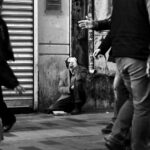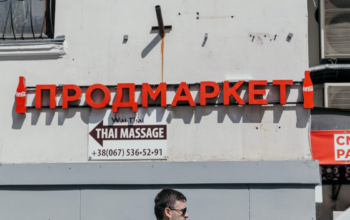In recent months, human rights have experienced a rapid proliferation in public discourse. People are unusually concerned with the status of their fundamental rights—for a good reason. Few liberal democracies have witnessed such heavy-handed state intervention and liberty rights restrictions as in 2020.
Lockdowns infringe on the right to freedom of movement, strict distancing measures and gathering regulations on the freedom of assembly. Religious service is limited, hymns of praise are a big no-no in virus containment—restricting free religious practice. Not even the right to choose one’s employment is guaranteed where restaurants, theaters, and other non-essential businesses are forced to shut down.
As much as these restrictions might feel like a dictatorial rule to those privileged enough to have grown up in a liberal democratic society—who have not the slightest of ideas of what such implications even mean—it couldn’t be further removed from rights and freedoms as they work in practice. As much as some might want to equivocate their rights with a kind of untouchable, inviolable decree—human rights were never meant to play that role in the first place.
“And God said, Let us make man in our image, after our likeness”
“…born free and equal in dignity and rights.” Or so the fairy tale is told, in the Universal Declaration of Human Rights. Granting humans rights merely on the basis of their existence as a human being is a fundamental underpinning of the Declaration. It is an ideal worth striving for but in practice, it could not be more problematic. It is no surprise that critical opposition to the notion of universality of human rights did not take long to arise after the Declaration first entered into force. With her essay The Rights of Man: What Are They?, Hannah Arendt launched what would become one of the most prominent critiques against the supposedly inalienable status of human rights. At the core of her critique is the critical question of how human rights are supposed to be universal, if their enforcement is conditional on the existence, willingness, and capability of the institutions of sovereign states to do so.
In short, and without granting Arendt the attention that she deserves, the answer to said question is: They are not universal. Not simply by virtue of existing. The respect and protection of human rights directly depend on citizenship and institutions, because rights—just like people—do not exist in a socio-political vacuum. They exist in a world divided into a map of sovereign states, holding societies to which people are assigned by birth. If one is lucky enough to be born into a state where democracy, rule of law, and respect for human rights governs, one, along with everyone else born in that state, has fundamental rights.
Being a citizen of a liberal democracy is principally like being a member of an exclusive club. You pay your membership, vote for your board, and avoid violating club rules. In return you reap the benefits of being a member. As do others. This is essential to keep the club running. The problem with membership, and its connected perks and duties, is that there is a risk to forget about the conditions on which this whole association is founded in the first place: To gather together with a common purpose. In the case of liberal democratic societies this is to live together, peacefully under the law, and to equally profit from the fruits of human cooperation—including the guarantee of certain fundamental rights.
It doesn’t take much calculating to figure out that in a society where all the members lay claims to their rights, there is bound to be some conflict sooner or later. You cannot have every single member of society demanding their freedom without any external interference. The current pandemic is paradigmatic of this: Were the COVID-19 “freedom fighters” to have their way, and states were to lift all kinds of restrictions, they would infringe on the rights to life and good health—enshrined in Article 6 of the ICCPR and Article 12 of the ICESCR respectively—of other members of society. This is why the freedoms set forward in international human rights documents are usually understood as liberties. And although the terms are often used interchangeably, there exists a conceptual difference: While freedom denotes the ability to do whatever one wishes without interference, the latter refers to the ability to do something without arbitrary interference. Liberties are what is granted, guaranteed, and protected by national laws.

Of Lives and Livelihoods
Few human rights are absolute. Among them are the prohibition of slavery and torture. This means that these rights can never be “put on hold”. Not in war, where allegedly anything goes, not ever. Most articles in the International Bill of Human Rights, however, come with limitations. This means that in cases of national emergency, where public order or public health are threatened, these rights can be derogated from. As long as measures are based in law, are necessary and proportional to the threat, it is perfectly legitimate for a state to limit rights, such as freedom of assembly or freedom of movement.
For many in the “corona-resistance” movement, these measures are neither necessary nor proportionate. Falsely claiming SARS-CoV-2 to be little more than a flu virus, which poses no serious threat to a vast majority of the population, they demand an end of the tyranny that restricts their personal freedoms and threatens their livelihoods. And while it is correct that in most cases, a COVID-19 infection takes a mild course, it is equally correct that there is a certain part of the population which is much more likely to be seriously affected by the disease. But even to those that acknowledge this fact, the equation still seems straightforward: The lives of the few do not justify risking the livelihoods of the many.
One of the great features of human rights is that they protect minorities from the will of the majority. Just because those facing a serious risk from SARS-CoV-2 are outnumbered does not mean that they do not deserve a healthy and safe life. This is part of what characterizes the liberal democratic society that so strongly protects exactly those fundamental rights that some understand as their personal trump card in the current crisis. Those same rights are designed to work as a protective shield for all the others whose lives and health endangered are endangered.
It is easy to demand something that unlikely affects oneself negatively. The vast majority of lockdown protesters in the US are white, whereas those disproportionately affected by the virus are people of color. Conversely, in Germany, 93% of those aged 60 and older, people facing higher risks from the virus, have no sympathy for anti-lockdown demonstrations. Undoubtedly, many of those demanding the end of corona-measures are negatively impacted by them, some disproportionately heavily. Their entire existence is at risk because of government restrictions. This should by no means be downplayed. Neither should human rights in times of the pandemic. The point is that there is a difference between making oneself heard by participating in a productive socio-political debate, and obstinately chanting for some sort of personal freedom which was never there in the first place.
There is no easy solution to a crisis as multifaceted as the current one. In fact, one of the greatest challenges in handling the COVID-19 pandemic is that alleviating one crisis seemingly aggravates another. Where individuals find themselves in the crossfire of government crisis-response mechanisms, it is easy to clutch onto the one tower of strength that promises protection from the great sovereign: Human rights. But once the underlying dynamic of this symbolic narrative is taken into consideration, one thing becomes painfully obvious: Insisting on your personal rights won’t heal a sick collective.
Related articles:
The Swedish COVID-19 pandemic strategy or: The Comeback of the “Ättestupa”
Back from the borderlands: taming and framing COVID-19
Socially Progressive, Economically Conservative: What Does It Mean to Be Liberal?
Photo credits:
“COVID-19 Anti-Lockdown Protest in Vancouver, May 3rd 2020” by GoToVan is licensed under CC BY 2.0










